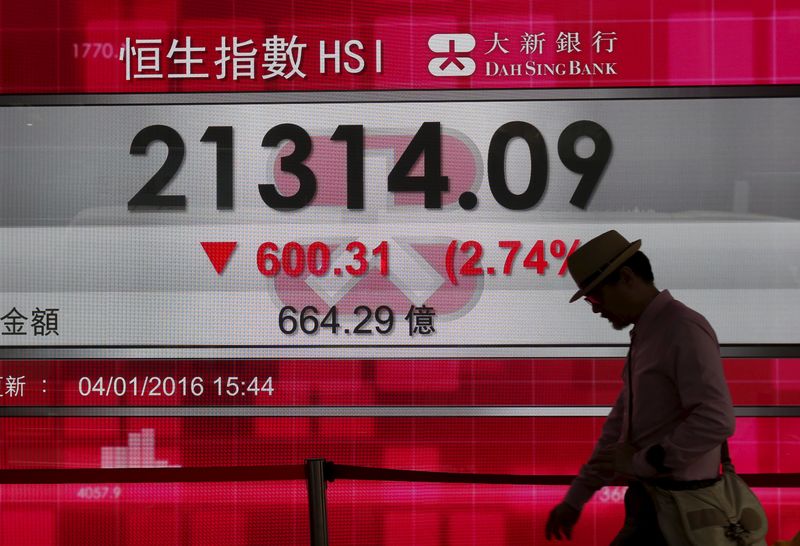Select Language

German container shipping firm Hapag-Lloyd earlier on Wednesday said its bookings were up 50% for U.S.-China traffic week on week in the first few days of this week.
When asked about Washington and Beijing’s tariff truce, CEO Rolf Habben Jansen told Reuters: "I expect that there will be additional volume between China and the U.S. That is what we have already seen in the last feMost Asian markets retreated on Thursday after a strong, tech-led run-up over the past four sessions now appeared to be cooling, with investors now awaiting key earnings from Chinese internet giant Alibaba .
Cheer over a U.S.-China trade deal also appeared to be easing, given that trade tariffs between the two countries still remained relatively high. Focus was now on a further deescalation in tariffs, as well as U.S. trade deals with other major Asian economies.
Regional markets took middling cues from a mixed overnight close on Wall Street, as sectors outside tech lost momentum. U.S. stock index futures fell slightly in Asian trade, with focus also turning to an upcoming address by Federal Reserve Chair Jerome Powell later in the day.
S&P 500 Futures fell 0.1% in Asian trade.
Asia tech rally cools, Alibaba earnings in focus
Tech-heavy Asian bourses mostly retreated on Thursday after strong gains earlier this week, which were in part driven by optimism over a U.S.-China trade deal and assurances that artificial intelligence demand remained robust.
South Korea’s KOSPI shed 0.1%, while Hong Kong’s Hang Seng index traded sideways.
HK-listed shares of Alibaba Group (HK:9988) (NYSE:BABA) rose 0.5% before the internet giant’s March quarter earnings. The e-commerce giant is expected to have benefited from improving Chinese consumer spending, as well as increasing local demand for its cloud unit.
Alibaba peer Tencent Holdings Ltd (HK:0700) rose 0.5% after its first-quarter revenue jumped 13% on strength in its gaming and advertising units, both of which were bolstered by AI. w days."
Asian AI-linked stocks took some negative cues from Nvidia-backed cloud major Coreweave, whose stock slid 15% in aftermarket trade after it warned that higher AI-related expenses will weigh on its margins in the coming quarters.
But tech shares were still sitting on strong gains this week, driven by bets that improving U.S.-China trade relations will herald fewer disruptions for the sector.
China’s Shanghai Shenzhen CSI 300 and Shanghai Composite indexes fell between 0.2% and 0.5%, but were trading up as much as 2% for the week.
Japan shares drop ahead of GDP data
Japanese stocks were the worst performers in Asia, pressured by some caution before key first-quarter gross domestic product data due on Friday.
The Nikkei 225 fell 1.1%, while the TOPIX shed 1%, with the indexes also dented by losses in tech stocks.
GDP data is expected to show a contraction in the first quarter, as local businesses were hit by weak private spending and heightened global trade uncertainties. Strong capital spending, however, is expected to have offset this trend.
Japanese growth is expected to pick up later this year, especially as springtime labor negotiations yielded another year of bumper wage hikes.
Broader Asian markets were mostly muted on Thursday. Australia’s ASX 200 rose 0.1% following a substantially stronger-than-expected labor market report for April, which showed the labor market remained strong.
Strength in the labor market gives the Reserve Bank of Australia less impetus to cut interest rates further, with Thursday’s reading sparking increased uncertainty over a RBA meeting next week.
Singapore’s Straits Times index rose 0.4%, while Gift Nifty 50 Futures for India’s Nifty 50 index fell 0.2%, pointing to a soft open. Indian markets had also rallied this week as a recent ceasefire with Pakistan appeared to be holding.

